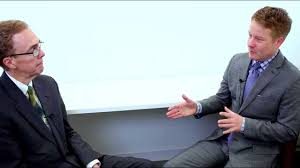Understanding the Client-Consultant Relationship
Your business is a well-oiled machine, with business processes in place developed to drive it forward and a team to support them, but even if your company “has it all”, very few companies handle 100% of their work “in-house.” Consultants are hired to improve timelines and enhance results for projects by bringing their expertise to bear for their clients.
Objectivity Improves Strategy
Although it is not often the reason they’re brought in, consultants provide a unique perspective to your business as a whole. The reason being that they are distant enough from your organizations to see situations from an objective point-of-view, and can also gauge those scenarios in comparison to their other client’s businesses. This objective perspective is based on their specific skill set and experience and focuses on industry trends and best practices.
With this in mind, consultants are also able to make recommendations rooted in a different set of assumptions, constraints, and history of experiences than those who live within the cadence of a company’s culture. While not every suggestion provided by a consultant is spot-on in its first delivery, it could provide another perspective worth considering, trigger new ideas, or be utilized as fodder to connect and combine with the client’s existing notions. It’s this “outside” objectivity, knowledge, and experience of your consultant married with the internal-business perspective of your team that enhances strategic planning.
Education and Focus Drive Results
The relationship between a client and consultant is more than a service-trade-off based on linear and predictable solutions consistent with the client’s beliefs or attitudes. Consultants hired to nod their heads in agreement or deliver answers to corroborate with a stated position (for political or self-soothing reasons) serve a different purpose than consultants hired for their thought leadership and solutions. The second approach to consulting may challenge the status quo and be a more unsettling path to take since it is not a familiar replication of past attempts under a new guise, but a new course of action to most in the organization. That said, it is the RIGHT path to take to receive the most from your consultant-client relationship.
The purpose of a consultant is to consult, educate, and potentially illuminate what has been lurking in the shadows but never recognized or accepted as part of the client’s reality. It’s the objective and experienced view that a consultant brings that allows them to call a spade a spade, to the betterment of their client’s businesses. Introducing new concepts, approaches, and processes often requires reshaping views and ideals that could have been holding a business back from new growth or potential. While it is for the good of the company, it could still be a hard pill to swallow. But a strong consultancy is willing to do what’s best for their client, even if it means having to stand their ground to do it.
Example: The Digital Consultant
The digital space is continuously morphing and remains fluid and dynamic, so much so that it takes a specialized focus to keep up with evolving trends and directional changes. Because most companies do not have an internal role to monitor and communicate the implications, consultants are extremely valuable as a means of keeping a pulse on the market. Insights from a consultant could be converted into competitive advantages by spotting trends early on and learning through iteration as trends mature. In this case, what is “known” evolves so quickly that a consultant helps you take advantage of new opportunities, or select the best new alternative triggered by these transformations.
Ultimately, it’s important to understand that the solutions consultants deliver are only part of their value. The other part is the educational journey along the way to their conclusions. It is the processes taken to arrive at their insight, the questions that challenge what was once considered “the norm”, giving the reason for pause and reflection, that make up the balance of the value of the client-consultant relationship.
The mere presence of an effective consultant serves as a proactive means of intervention to examine, contemplate and inquire, to remove invisible barriers and accelerate the flow, and course correct the auto-pilot nature of most organizations. Their “third option” to binary choices make consultants a worthy investment to leverage and a necessity to progress beyond the nature of our cyclical patterns of human, and corporate behavior.

